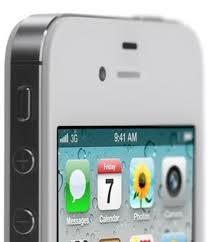Every new iPhone and upgrade puts the carriers in dilemma – Part 2
Friday, January 27th, 2012 5:33:52 by Usman Khalid
The demand for the iPhone is staggering. Verizon, for instance, said on Tuesday it activated 4.3 million iPhones, or more than half of the smartphones sold in the period. Most of those activations came from existing customers; Verizon added 1.2 million net new contract customers.
All of that came at a cost. After taking out one-time items such as pension-related costs, the company earned 52 cents a share, two cents shy of Wall Street expectations. Excluding income tax, depreciation and amortization, earnings fell 1.1 percent from its year-earlier period. A year ago, when Verizon didn’t have the iPhone, it saw 5.5 percent growth.
Verizon, however, was upbeat about the customer growth driven by the iPhone, acknowledging that margins would fluctuate in the next few quarters.
“The sales volumes in the fourth quarter exceeded our expectations, but obviously will create more opportunity for growth in 2012,” Chief Financial Officer Fran Shammo said during a conference call on Tuesday.
AT&T, meanwhile, said today it activated 7.6 million iPhones–a vast majority of customers choosing the iPhone 4S–but only added 717,000 net new contract subscribers. AT&T’s results over the past few years illustrate Moffett’s concerns. Since getting the iPhone and moving to a subsidy model, the company has seen lower margins, he said. Its fourth-quarter wireless margins dropped by a third from a year ago.
Like Verizon, AT&T remains bullish on its ability to derive more longer term value out of its iPhone customers.
“All in, I continue to be a big-time bull on the smartphone category and the iPhone in general,” AT&T CEO Randall Stephenson said during a conference call today. “I’m not shying away from this market.”
While acknowledging some of the margin pressure, Stephenson said he sees the smartphone as a platform to sell more services, including tablets and other connected devices.
Others aren’t so optimistic. Morgan Stanley analyst Simon Flannery said he expects average revenue per user growth to slow for the wireless carriers. Beyond data, the companies face pressure from shrinking revenue on the voice and text message side of the business.
Sprint, meanwhile, has more at stake than anyone else. The company has basically bet its financial future on the success of the iPhone, reportedly committing to pay Apple $20 billion for 30 million iPhones for the next four years.
Sprint CEO Dan Hesse and his leadership team have been nothing but ecstatic over getting the iPhone, with one executive likening it to getting a seat at the cool kids’ table.
But with three national carriers (and one regional one) carrying the iPhone, how exclusive is this club?
“Sprint decided to mortgage its entire future just to make sure it has the me-too status of saying they had the iPhone for sale,” Moffett said.
Tags: Apple, at and t, at&t, carriers, ios, loyal customers, Smartphones, Sprint, subsidy, upgrades, Verizon
Short URL: https://www.newspakistan.pk/?p=10767

















